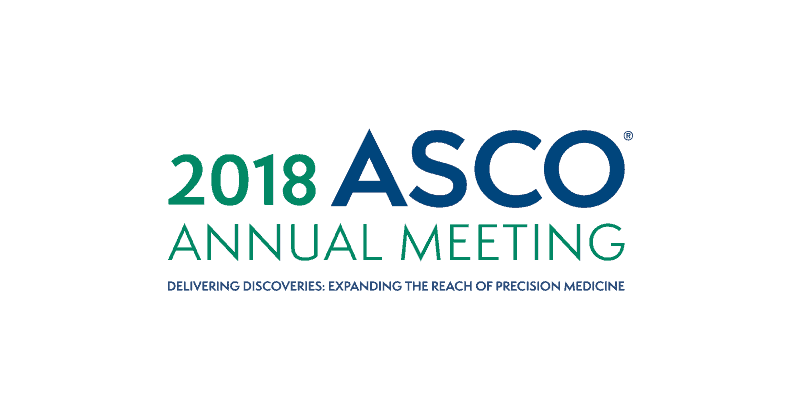The Annual Meeting of the American Society of Clinical Oncologists brings together more than 32,000 oncology professionals from around the world to discuss state-of-the-art treatment modalities, new therapies, and ongoing controversies in the field.
CRI scientists are presenting at the meeting. We are providing a daily recap of new work coming out of the conference, and we are hosting a conference panel with experts translating this new research into what this means for patients.
Below are some of the CRI scientists who are, either in person or represented through their work, at ASCO18:
- Georgina V. Long, MD, PhD, a CRI Clinical Team Leader at the Melanoma Institute Australia, is giving a talk on a phase III trial comparing anti-PD-1 checkpoint immunotherapy alone versus in combination with an IDO1 inhibitor in patients with unresectable or metastatic melanoma. Long is giving another talk on the long-term benefits of anti-PD-1 checkpoint immunotherapy for melanoma patients that is determining how the duration of treatment affects outcomes. Long is also involved in two other projects being highlighted: one that is utilizing PET (positron emission tomography) scans to determine patient outcomes after anti-PD-1 checkpoint immunotherapy, and another that is exploring biomarkers associated with responses to anti-PD-1 checkpoint immunotherapy given alone as well as in combination.
- Antoni Ribas, MD, PhD, a leader of the CRI-SU2C Dream Team at the University of California, Los Angeles (UCLA), and a member of the CRI Clinical Accelerator Leadership, is leading work in which patients with advanced melanoma are treated with the combination of an anti-PD-1 checkpoint inhibitor and a Toll-like receptor 9 (TLR9) agonist. Ribas is also leading work looking at long-term benefits of patients with advanced melanoma who were treated with anti-PD-1 checkpoint immunotherapy.
- Margaret Callahan, MD, PhD, a former CRI postdoctoral fellow at Memorial Sloan Kettering Cancer Center, is leading work involving the combination of an anti-PD-1 checkpoint inhibitor and an ICOS agonist in patients with several types of advanced cancer.
- Hideho Okada, MD, PhD, a CRI Clinical Team Leader at the University of California, San Francisco (UCSF), is involved in work that developed personalized vaccines for patients with newly diagnosed glioblastoma.
- James P. Allison, PhD, and Padmanee Sharma, MD, PhD, both of the University of Texas MD Anderson Cancer Center, are involved in work that evaluating the effectiveness of an anti-PD-1 checkpoint inhibitor both before and after surgery in patients with recurrent glioblastoma, a type of brain cancer. Allison is the director of CRI’s Scientific Advisory Council as well as a leader of the CRI-SU2C Dream Team, of which Sharma is also a member.
- Suzanne Topalian, MD, PhD, a member of the CRI-SU2C Dream Team at the Johns Hopkins University School of Medicine, is giving a talk on the benefits of anti-PD-1 checkpoint immunotherapy prior to surgery in patients with resectable Merkel cell carcinoma.
- Jhanelle Gray, MD, of Moffitt Cancer Center, is leading a discussion about insights regarding patient reported outcomes (PROs) in first-line combination immunotherapy trials in advanced lung cancer. Gray is also involved in a lung cancer immunotherapy trial sponsored by the CRI Clinical Accelerator.
- Israel Lowy, MD, PhD, of Regeneron, and a member of the steering committee of CRI’s Cancer Immunotherapy Consortium, is involved in work exploring the effectiveness of anti-PD-1 checkpoint immunotherapy in patients with metastatic squamous cell carcinoma.
- Thomas Gajewski, MD, PhD, a former CRI CLIP Investigator at the University of Chicago Medical Center and current member of the CRI Scientific Advisory Council, is discussing three separate projects: one focusing on an immune-related biomarker that could predict outcomes to anti-PD-1/PD-L1 checkpoint immunotherapy, another dealing with using machine learning algorithms to determine factors important for effective immunotherapy, and one investigating how different forms of progressive disease are associated with different outcomes.
- David Reardon, MD, of the Dana-Farber Cancer Institute, is speaking about work that involved the combination of an anti-PD-1 checkpoint inhibitor and an anti-VEGF-A targeted antibody to treat patients with recurrent glioblastoma, a type of brain cancer. Reardon is also currently leading a brain cancer clinical trial sponsored by CRI’s Clinical Accelerator.
- Charles G. Drake, MD, PhD, of New York-Presbyterian and the Columbia University Medical Center and a CRI Scientific Advisory Council member, is discussing the topic of combination immunotherapies and whether they have come of age.
For more on ASCO18, be sure to check out our daily blog coverage (Day 1, Day 2, Day 3, Day 4, Day 5) and our overall recap.
Banner image: Willis Tower Skydeck, Chicago, United States. Photo by Pedro Lastra on Unsplash.
